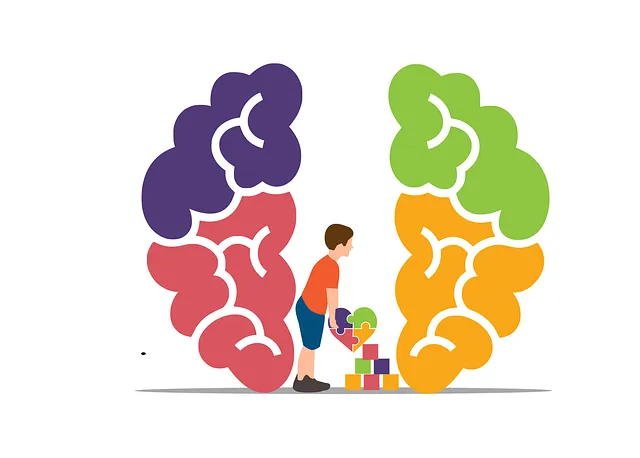The Broomfield Kaiser Permanente Mental Health Access Center leverages comprehensive mental health data analysis, emotional intelligence training, and advanced analytics to deliver tailored care. By integrating mental health services with primary care, the center enhances accessibility, reduces stigma, and promotes holistic well-being. Utilizing structured interviews, surveys, and machine learning models, they gain insights into patient demographics, symptoms, and treatment outcomes. This data-driven approach not only improves patient outcomes but also informs policy advocacy, healthcare provider well-being, and targeted interventions for specific mental health needs within the community.
Mental health data analysis is a pivotal component in understanding and addressing societal challenges related to well-being. This article provides a comprehensive overview of this field, focusing on case studies like the Broomfield Kaiser Permanente Mental Health Access Center. We explore various data collection methods and advanced analytics techniques that reveal mental health trends. Additionally, we discuss practical applications and ethical considerations, highlighting the importance of responsible mental health data analysis in improving access to care, as demonstrated by the Broomfield center’s successful initiatives.
- Understanding Mental Health Data: A Comprehensive Overview
- The Broomfield Kaiser Permanente Mental Health Access Center: A Case Study
- Data Collection Methods in Mental Health Research
- Advanced Analytics Techniques for Interpreting Mental Health Trends
- Practical Applications and Ethical Considerations in Mental Health Data Analysis
Understanding Mental Health Data: A Comprehensive Overview

Understanding Mental Health Data is a multifaceted process that forms the bedrock for effective interventions and policies at institutions like Broomfield Kaiser Permanente Mental Health Access Center. This data encompasses various metrics, from patient demographics to symptoms, treatment outcomes, and satisfaction levels. By meticulously analyzing this data, mental health professionals can uncover trends, identify at-risk populations, and tailor services to meet specific needs.
At the heart of this process lies emotional intelligence, a crucial tool for interpreting complex data. Self-awareness exercises and mental health education programs designed with emotional intelligence in mind can enhance the ability to recognize patterns within the data, leading to more nuanced understandings of individual and community mental health needs. This, in turn, enables evidence-based decision-making that drives improved access to quality care at centers like Broomfield Kaiser Permanente.
The Broomfield Kaiser Permanente Mental Health Access Center: A Case Study

The Broomfield Kaiser Permanente Mental Health Access Center stands as a remarkable example of integrating mental health services into a primary care setting. This innovative approach has significantly improved access to care, addressing a critical gap in the healthcare system. By providing on-site mental health professionals alongside primary care services, the center fosters a holistic and inclusive environment for patients. The model promotes early intervention and continuous support, reducing the stigma often associated with seeking mental health assistance.
Through its comprehensive services, the Broomfield Kaiser Permanente Mental Health Access Center has not only enhanced patient outcomes but also contributed to the development of public awareness campaigns and mindfulness meditation programs. The center’s success underscores the importance of integrating mental healthcare into mainstream medical practices. This strategy ensures that patients receive culturally competent care tailored to their unique needs, ultimately improving overall well-being in the community.
Data Collection Methods in Mental Health Research

Mental health research thrives on accurate data collection, and the methods employed can significantly impact the quality and validity of findings. At centers like the Broomfield Kaiser Permanente Mental Health Access Center, researchers utilize a range of techniques to gather comprehensive mental health data. These include structured interviews, surveys, and self-report measures, which provide insights into individuals’ symptoms, experiences, and behaviors. For instance, standardized questionnaires like the PHQ-9 (Patient Health Questionnaire) are used to assess depression severity, while semi-structured clinical interviews offer deeper exploration of diagnostic criteria.
Furthermore, with an increasing focus on healthcare provider well-being, tools like Burnout Prevention Strategies for Healthcare Providers have been integrated into data collection processes. These strategies not only aim to identify and mitigate burnout but also encourage the development of Coping Skills and effective Stress Management techniques among practitioners, thereby enhancing both their resilience and the quality of patient care.
Advanced Analytics Techniques for Interpreting Mental Health Trends

In the realm of mental health care, advanced analytics techniques are transforming data into actionable insights. These sophisticated methods, employed at centers like Broomfield Kaiser Permanente Mental Health Access Center, offer a deeper understanding of trends and patterns within patient populations. By leveraging machine learning algorithms and statistical models, healthcare providers can identify risk factors, predict outcomes, and personalize treatment plans more effectively. This data-driven approach enhances the accuracy of mental health assessments, enabling professionals to intervene early and improve patient outcomes.
Furthermore, these analytics tools play a crucial role in Mental Health Policy Analysis and Advocacy, Burnout Prevention, and Social Skills Training initiatives. They help policymakers identify gaps in services, advocate for evidence-based practices, and allocate resources efficiently. In preventing burnout among healthcare workers, analytics can predict workload spikes and suggest strategies to optimize staff well-being. Similarly, by analyzing social interactions and communication patterns, these techniques can inform the development of tailored training programs aimed at enhancing social skills and overall mental wellness.
Practical Applications and Ethical Considerations in Mental Health Data Analysis

In the realm of mental health care, data analysis plays a pivotal role in unraveling complex trends and patterns within patient populations. Organizations like the Broomfield Kaiser Permanente Mental Health Access Center have recognized this potential, leveraging data to enhance treatment outcomes and improve access to mental health services. Through sophisticated analytics, healthcare professionals can identify areas of concern, such as elevated rates of anxiety or depression within specific demographics, enabling targeted interventions. For instance, the development of Burnout Prevention Strategies for Healthcare Providers could be informed by data analysis, ensuring that support systems and resources are in place to mitigate professional burnout, a significant issue impacting mental health care delivery.
Ethical considerations, however, remain paramount in this domain. Privacy and consent are fundamental when handling sensitive mental health data. Professionals must adhere to strict guidelines for data protection and ensure informed consent is obtained from patients. Moreover, the potential for bias in algorithms and the need for transparent reporting of findings are crucial aspects to address. Crisis Intervention Guidance can benefit from data-driven insights, allowing for more effective response strategies during emergencies. Similarly, Mental Wellness Coaching Programs Development can be guided by data analysis, tailoring coaching approaches to meet the diverse needs of individuals seeking mental health support.
Mental health data analysis has evolved into a powerful tool, as evidenced by the successful initiatives at the Broomfield Kaiser Permanente Mental Health Access Center. By employing advanced analytics techniques, researchers can uncover valuable trends and insights from diverse data sources, enabling more effective interventions and personalized care. This article has explored various aspects of mental health data analysis, from understanding complex datasets to considering ethical implications. As technology advances, continued exploration in this field will be pivotal in improving access to quality mental healthcare, ensuring that individuals receive the support they need in a rapidly changing world.






